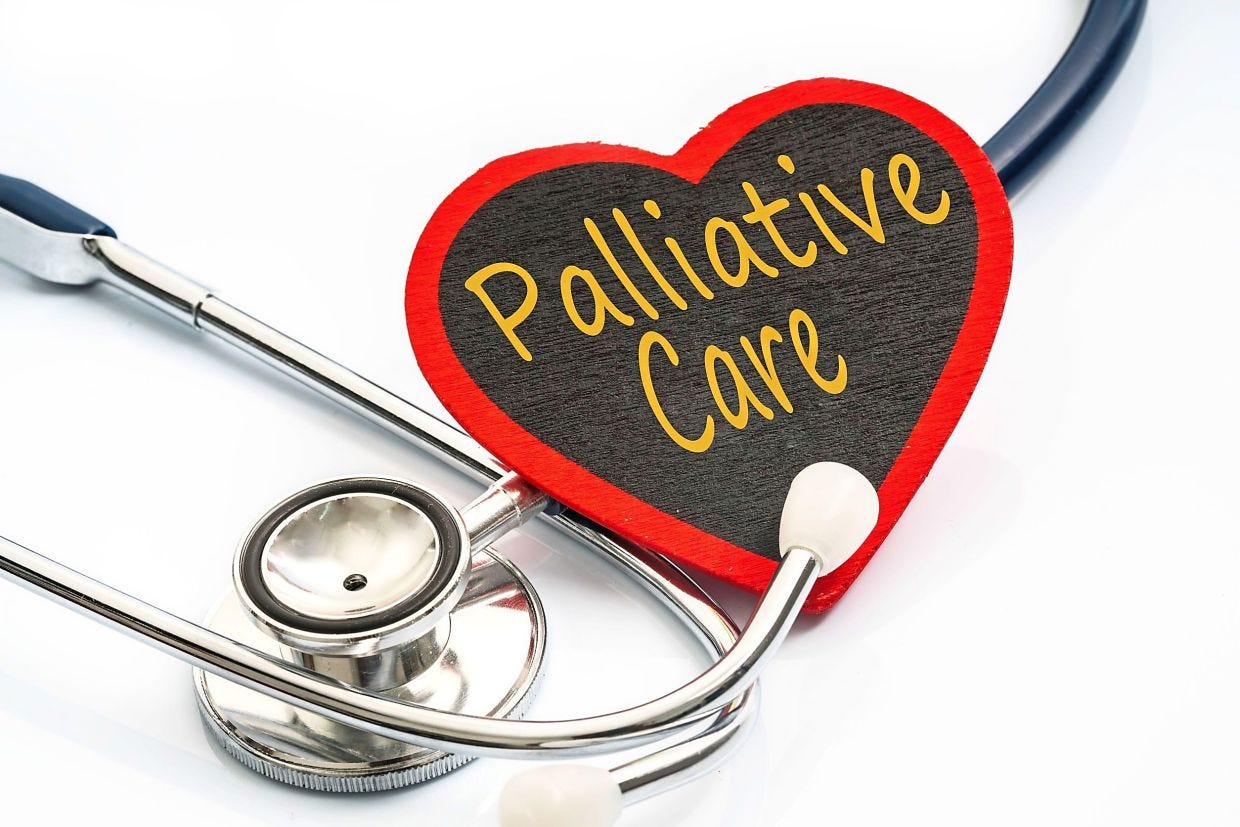The Basics of Palliative Care
It begins with practicing love, empathy and compassion in our communities
An edited version of this op-ed was first published in The Star at https://www.thestar.com.my/opinion/letters/2021/01/04/basics-of-palliative-care
The COVID-19 pandemic has created fundamental uncertainties in communities and our healthcare systems, especially in how we deal with fears and taboos surrounding death. Despite the high death trajectory caused by COVID-19, the topics of death and dying in society remains a sterilized affair, where deaths become mere statistics, flashed across our screens daily. However, the process of dying and death of loved ones creates profound, lasting impact on their families and wider communities. As a society, we are not exposed enough to be fully equipped to support end of life journeys. We need to be able to normalize the process of death and have the courage to advocate for a holistic care plan, not by just buying insurance policies, but by practicing love, empathy and compassion in preparing and supporting all end of life journeys. This is also known as palliative care, which may begin at the start of life-threatening illnesses to end of life journeys. Dame Cicely Saunders, the founder of modern hospice, described palliative care in its most holistic sense:
“You matter because you are you, and you matter to the end of your life. We will do all we can not only to help you die peacefully, but also to live until you die.”
Palliative care regards dying as a normal process in the journey of life, integrating psychological and spiritual dimensions into patient care. A holistic approach to a patient care plan enables patients and families to better cope with the course of the patients’ illness and provides a support network for bereavement care.
The COVID-19 pandemic has highlighted the importance of palliative care in all health care systems. The need for relief from severe suffering, the difficult decision making, and complicated grief brought on by the pandemic are exactly the types of problems that palliative care was designed to help address.
My father, who is a consultant haematologist, treats cancer patients, amongst other life-threatening blood disorders, and fully supports palliative care causes. I, as a tech startup builder, believe that blockchain, AI, and other automation technologies will drive the future of society. Despite our different life calling, I, too, join my father in fully supporting palliative care as essential care for vulnerable members of our community. We both fully recognize that palliative care does not start and stop with doctors and nurses alone. The success of effective and affordable palliative care lies in the hands of a palliative care-informed society. Hospices in Malaysia and Singapore are typically independent non-profit entities run by community members on charitable donations and volunteerism. Ultimately, palliative care is a community driven initiative. All of us have a part of play, as family caregivers, pastoral caretakers, therapists, healthcare professionals, and more.
Through a journey I’ve undertaken in my own life as a volunteer carer in a hospice, I developed a genuine understanding of the principles of palliative care in practice. Hospice environments provide a powerful example in how we as a community can practice love, empathy and compassion when facing fear and loss of loved ones. What matters to patients who are actively dying include: relief from pain, maintaining one’s dignity, not dying alone, and having a comforting touch of the hand during their end of life journey. Community volunteers can support palliative care nurses and doctors by assisting with non-clinical pain management, such as cleaning and feeding of patients, providing wheelchair assistance, spending time with patients, and more. These acts of love for others are what truly makes us human. Through volunteering in a hospice, I was able to face the mirror of death and fully embrace my humanity by showing love, empathy and compassion for the suffering of others – something that technology or AI machines can never truly replicate.
I would like to express my thanks to The Star editorial team for their continued coverage to raise awareness on palliative care, and for profiling my father’s book fundraiser efforts for the Faith Hope Love Hospice. To date, more than 100 books have already been purchased, with more orders on the way. Intended for patients, caregivers and healthcare professionals, proceeds from the sales of the 270-page book will go to the newly set-up Faith Hope Love Hospice Care Malaysia in Petaling Jaya, Selangor. Book sale enquiries can also be made at donation@fhlhospice.org
Let’s all do our part today to build a palliative care-aware society, whether it is through advocacy, community volunteerism or giving.



